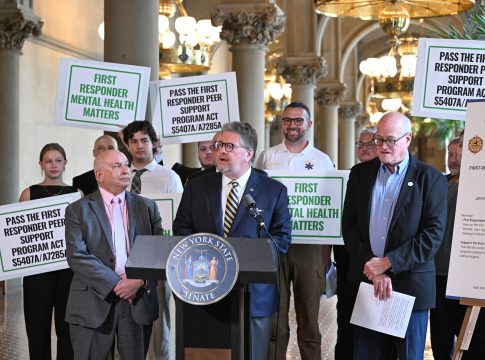Supporting Our First Responders: The Need for Peer Support Programs
In recent discourse surrounding mental health, the spotlight has illuminated the urgent need for support systems dedicated to our first responders—those courageous individuals who serve and protect our communities. New York State legislators, particularly Senator Pete Harckham and Assemblyman Chris Burdick, have stepped forward advocating for the First Responder Peer Support Act. This proposed legislation aims to create a statewide mental health and peer support training program tailored specifically for first responders, honoring both their sacrifices and the heavy emotional toll of their work.
Understanding the Challenge
First responders—including police officers, firefighters, and emergency medical personnel—regularly encounter high-stress, traumatic situations. These experiences can lead to significant mental health challenges, such as anxiety, depression, and post-traumatic stress disorder (PTSD). A recent survey highlighted sobering statistics: about 80% of first responders reported negative effects on their home life stemming from their profession, while a staggering 16% admitted to having suicidal thoughts—four times the rate observed in the general population.
The Power of Peer Support
The First Responder Peer Support Act is designed to bridge the gap between the challenges faced by these individuals and the resources available to them. By fostering peer-to-peer support, the program encourages first responders to seek help from those who understand their experiences intimately. This model emphasizes the importance of empathy, creating a safe environment where individuals can discuss their struggles without fear of stigma or professional repercussions.
Key Benefits of Peer Support:
- Confidentiality: Ensures that first responders can seek help without worrying about their careers.
- Understanding: Peers share similar experiences and can validate feelings, making it easier to discuss mental health openly.
- Early Intervention: By identifying emotional distress early, individuals can receive support before challenges escalate.
Protecting Our Protectors
The need for such programs is increasingly critical. As noted by mental health advocates, first responders shoulder immense burdens daily, often silently. The ramifications of their work extend beyond the job; they affect personal relationships and overall wellbeing. The proposed legislation seeks not only to provide accessible resources but also to cultivate a culture of wellness within first responder communities.
Consider these practical insights to support mental health:
- Encourage Open Dialogue: Create spaces where first responders can discuss their feelings and experiences.
- Promote Accessibility: Advocate for services that are not only available but also easy to navigate.
- Foster Awareness: Increase understanding of the mental health challenges specific to first responders among civilians and within the force.
A Collective Responsibility
As we advocate for the mental health of those who serve tirelessly, it is essential to remember that supporting first responders is a community effort. This initiative acknowledges their bravery and promises to provide them with the support they deserve. As Sheriff James Allard poignantly remarked, having accessible, trained peers by their side can be a lifeline for these heroes.
In conclusion, the First Responder Peer Support Act represents a pivotal step toward safeguarding the mental health of those who protect us. It underlines a fundamental truth: when we take care of our first responders, we ensure their capacity to take care of us. Embracing this compassionate approach not only uplifts those in the line of duty but also reinforces the fabric of resilience within our communities.

Covers wellness, nutrition, mental health, and daily life tips.
Bio: Talia brings a background in health journalism and holistic living to help readers live better, one tip at a time.

